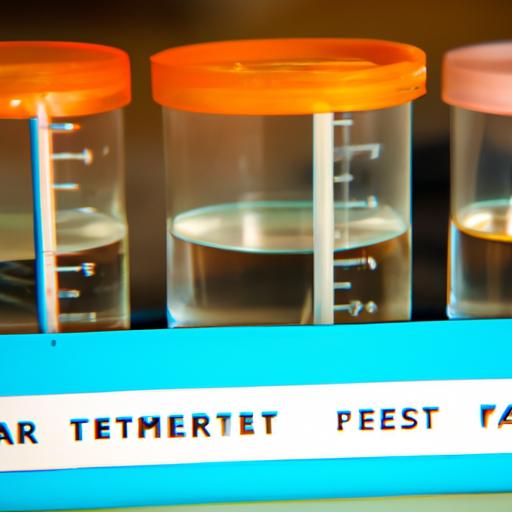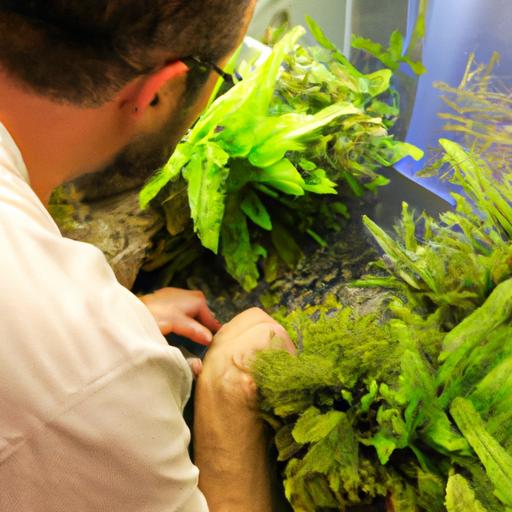Introduction
As pet owners, it is our responsibility to ensure the well-being of our beloved animals, and fish are no exception. Fish welfare, often overlooked, plays a crucial role in maintaining the health and happiness of our aquatic friends. In this article, we will explore the significance of fish welfare, the factors that affect it, and how we can ensure optimal care for our finned companions.
Understanding Fish Welfare: An Overview

Fish welfare refers to the physical and psychological well-being of fish in their aquatic environments. Just like any other living creature, fish experience emotions, feel pain, and require proper care to thrive. However, due to their unique living conditions, it is important to understand the specific factors that impact their welfare.
Key Aspects of Fish Welfare

Water Quality and Temperature Control
Maintaining pristine water quality and appropriate temperature levels is vital for the overall health of fish. Poor water conditions can lead to stress, disease, and even death. Regular monitoring of water parameters such as pH, ammonia, nitrate, and temperature, along with proper filtration and water changes, are essential to ensure optimal fish welfare.
Appropriate Tank Size and Habitat Enrichment
Providing adequate living space is crucial for the well-being of fish. A crowded environment can lead to stress, aggression, and stunted growth. Researching the specific needs of your fish species and providing them with a suitable tank size is essential. Additionally, incorporating habitat enrichment, such as plants, rocks, and hiding spots, mimics their natural environment and promotes their mental and physical stimulation.
Proper Nutrition and Feeding Practices
Offering a balanced diet that meets the nutritional needs of your fish is vital for their well-being. Different species have varying dietary requirements, and it is essential to provide them with appropriate food options. Overfeeding or underfeeding can lead to health problems, so it is important to follow recommended feeding guidelines and monitor their eating habits.
Disease Prevention and Healthcare Measures
Fish are susceptible to various diseases and parasites, which can greatly impact their welfare. Maintaining a clean environment, quarantining new fish before introducing them to your tank, and regularly monitoring for signs of illness are crucial steps in preventing diseases. Consulting with a veterinarian experienced in fish care can provide valuable guidance in maintaining optimal fish health.
Promoting Fish Welfare: Best Practices

Now that we understand the key aspects of fish welfare, let’s delve into some best practices to ensure the well-being of our aquatic companions.
Creating an Ideal Aquatic Environment
To provide the best possible environment for your fish, start by researching their specific needs. Consider factors such as temperature requirements, water pH, and compatibility with other fish species. Setting up a properly cycled aquarium with adequate filtration and regular maintenance will help create a stable and healthy habitat for your fish.
Choosing Suitable Fish Species for Home Aquariums
Not all fish species are suitable for home aquariums. Some require larger tanks or specific water conditions that may be challenging for beginners. Researching and selecting fish species that are well-suited to your tank size, water parameters, and level of experience will greatly contribute to their overall welfare.
Implementing Proper Feeding Routines
Feeding your fish the right amount and type of food is crucial. Overfeeding can lead to obesity, poor water quality, and health issues, while underfeeding can result in malnutrition. Follow the recommended feeding guidelines for your fish species, and observe their eating habits to ensure they are getting the proper nutrition.
Regular Health Monitoring and Veterinary Care
Keeping a close eye on your fish’s behavior and appearance is essential. Look for signs of stress, disease, or injury, such as changes in appetite, abnormal swimming patterns, or physical abnormalities. If you notice any concerning symptoms, consult with a veterinarian experienced in fish care for proper diagnosis and treatment.
Addressing Common Concerns: FAQ on Fish Welfare

To further enhance your understanding of fish welfare, let’s address some frequently asked questions:
Is it necessary to provide a specific diet for different fish species?
Yes, different fish species have varying nutritional needs. Research the dietary requirements of your specific fish species and provide a diet that meets their needs. This may include a combination of commercial fish food, live or frozen foods, and occasional treats.
How can I ensure optimal water quality in my aquarium?
Regularly test the water parameters such as pH, ammonia, nitrate, and temperature to ensure they are within the recommended range for your fish species. Use appropriate filtration systems, perform regular water changes, and avoid overstocking your tank to maintain optimal water quality.
What are the signs of fish stress and how can I reduce it?
Signs of fish stress include decreased appetite, abnormal swimming behavior, color changes, and aggression. To reduce stress, provide a suitable tank environment with proper hiding spots, minimize sudden changes in water conditions, and ensure compatibility among fish species.
Are there any specific regulations or guidelines for fish welfare?
While fish welfare regulations may vary by region, there are general guidelines and ethical considerations that responsible fishkeepers should follow. Stay informed about the legal requirements and consult reputable sources such as fishkeeping associations or aquatic veterinarians for guidance on proper care practices.
How can I prevent diseases and parasites in my fish tank?
Maintaining good water quality, quarantining new fish, and practicing proper hygiene when handling aquarium equipment can help prevent diseases and parasites. Regularly observe your fish for any signs of illness or abnormal behavior, and seek veterinary assistance if needed.
Can fish experience pain?
While the exact extent of fish perception is still a topic of scientific debate, research suggests that fish have the ability to perceive pain. It is important to provide them with appropriate care and minimize any potential sources of pain or distress.
The Role of Fish Welfare in Sustainable Aquaculture

Fish welfare is not limited to home aquariums; it also plays a crucial role in the aquaculture industry. By prioritizing fish welfare in commercial settings, we can ensure the sustainability of fish populations, reduce stress and disease prevalence, and enhance the overall quality of farmed fish. Innovations and advancements in aquaculture practices, such as optimizing tank design and implementing humane harvesting techniques, contribute to improved fish welfare.
Conclusion
In conclusion, fish welfare is an essential aspect of responsible fishkeeping. By understanding the significance of fish welfare, implementing best practices, and addressing common concerns, we can ensure the well-being of our aquatic companions. Let us all strive to provide optimal care for our fish, promoting their health, happiness, and longevity. Remember, when it comes to fish welfare, every action we take makes a significant difference.
Critter Kingdom is committed to providing valuable information and resources for pet owners, including comprehensive guides on fish welfare. Together, let’s create a world where our finned friends thrive and flourish.

